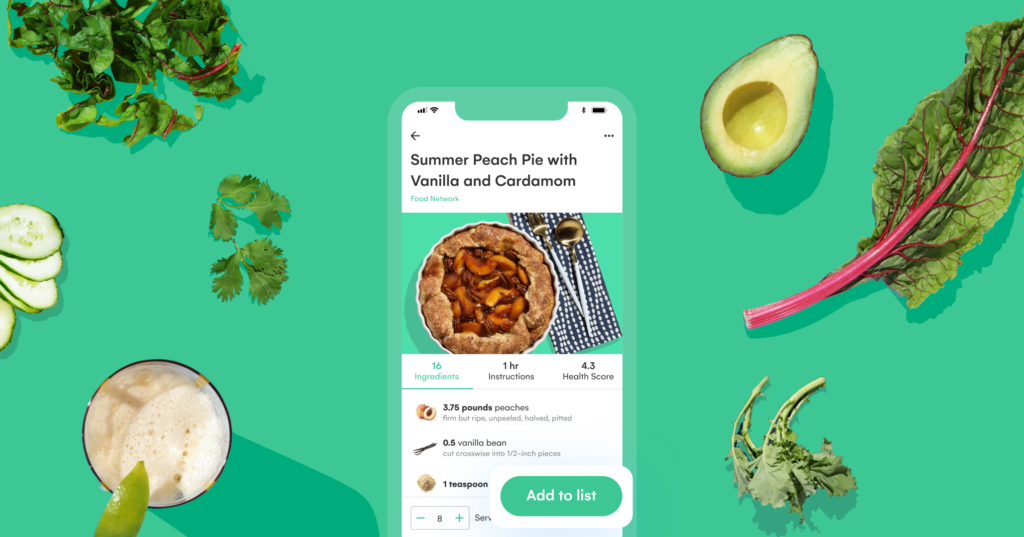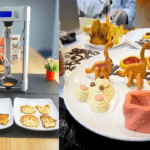In the realm of culinary arts, creativity and innovation have always been prized. With the advent of artificial intelligence (AI), the kitchen is experiencing a technological revolution that transforms how recipes are developed, tailored, and optimized. AI-powered recipe development represents a paradigm shift, enabling chefs and food technologists to harness data-driven insights to create dishes that are not only novel but also aligned with nutritional, dietary, and sensory preferences. This article delves into the transformative potential of AI in recipe development, exploring its applications, benefits, challenges, and future prospects.
The Role of AI in Recipe Development
AI’s role in recipe development spans several key areas, from generating novel recipes to optimizing existing ones and personalizing culinary experiences. By leveraging algorithms, machine learning, and vast data sets, AI can enhance creativity, streamline processes, and deliver more personalized food experiences.
- Recipe Generation
- Algorithmic Creativity: AI algorithms can analyze vast amounts of existing recipes, ingredients, and flavor profiles to generate new and unique recipe combinations. Machine learning models can identify patterns and correlations that may not be immediately apparent to human chefs, leading to innovative culinary creations.
- Ingredient Substitution: AI can suggest substitutions for ingredients based on availability, dietary restrictions, or flavor preferences. This capability is particularly useful for adapting recipes to accommodate allergies, preferences, or seasonal ingredients.
- Trend Analysis: By analyzing current food trends and consumer preferences, AI can generate recipes that align with popular culinary movements, ensuring that new creations are timely and relevant.
- Recipe Optimization
- Nutritional Analysis: AI can evaluate the nutritional content of recipes, helping chefs and food developers create dishes that meet specific dietary requirements or health goals. This includes optimizing recipes for calorie content, macronutrient balance, and micronutrient enrichment.
- Sensory Evaluation: AI models can predict how different ingredients and combinations will affect the sensory attributes of a dish, such as taste, texture, and aroma. This allows for fine-tuning of recipes to achieve desired sensory profiles.
- Cost Efficiency: AI can assist in optimizing recipes for cost efficiency by analyzing ingredient prices and suggesting adjustments that maintain quality while reducing expenses.
- Personalized Recipe Recommendations
- User Preferences: AI can analyze individual user preferences and dietary restrictions to provide personalized recipe recommendations. By incorporating data from user interactions, AI can suggest recipes that align with specific tastes, allergies, and nutritional needs.
- Adaptive Learning: AI systems can learn from user feedback and interactions to continuously refine recommendations. As users rate recipes and provide feedback, AI algorithms adjust their recommendations to better match individual preferences.
- Data-Driven Insights
- Flavor Pairing: AI can identify unique and unexpected flavor pairings by analyzing chemical compounds and flavor profiles of various ingredients. This can lead to innovative culinary combinations that enhance the overall dining experience.
- Recipe Evolution: By tracking and analyzing the performance of recipes over time, AI can identify trends and patterns that inform future recipe development. This data-driven approach allows for iterative improvements and refinement of recipes.
Applications of AI-Powered Recipe Development
AI-powered recipe development has a wide range of applications across various sectors, including restaurants, food manufacturing, and home cooking. These applications demonstrate the versatility and potential of AI to revolutionize the culinary world.
- Restaurants and Foodservice
- Menu Innovation: Restaurants can use AI to develop new menu items that cater to evolving consumer preferences and dietary trends. By analyzing customer data and feedback, AI can suggest dishes that are likely to resonate with diners.
- Operational Efficiency: AI can optimize kitchen operations by predicting ingredient usage, managing inventory, and streamlining food preparation processes. This enhances efficiency and reduces waste in restaurant kitchens.
- Food Manufacturing
- Product Development: Food manufacturers can leverage AI to create new products and improve existing ones. AI can assist in formulating recipes that meet specific nutritional targets, flavor profiles, and consumer demands.
- Quality Control: AI can monitor and analyze product quality throughout the production process, identifying deviations and ensuring consistency in taste, texture, and appearance.
- Home Cooking
- Recipe Discovery: Home cooks can benefit from AI-powered recipe recommendation systems that provide personalized suggestions based on available ingredients and dietary preferences. This makes it easier for individuals to discover new and exciting recipes.
- Cooking Assistance: AI-powered cooking assistants, such as smart kitchen appliances and apps, can guide users through recipe preparation, offer real-time feedback, and adjust recipes based on user input.
- Diet and Nutrition
- Personalized Diet Plans: AI can generate personalized diet plans based on individual health goals, dietary restrictions, and lifestyle factors. By analyzing nutritional data and user preferences, AI can create meal plans that support overall well-being.
- Health Monitoring: AI systems can track and analyze health data to provide recommendations for dietary adjustments and recipe modifications. This enables individuals to make informed decisions about their diet and nutrition.
Benefits of AI in Recipe Development
The integration of AI into recipe development offers several significant benefits, enhancing creativity, efficiency, and personalization in the culinary world.
- Enhanced Creativity
- Novel Combinations: AI can generate unique recipe combinations by exploring unconventional ingredient pairings and flavor profiles. This fosters innovation and encourages experimentation in the kitchen.
- Data-Driven Inspiration: By analyzing vast amounts of culinary data, AI can inspire chefs and food developers with new ideas and approaches, expanding the boundaries of traditional cooking.
- Increased Efficiency
- Streamlined Processes: AI can automate repetitive tasks, such as ingredient measurement and recipe scaling, allowing chefs to focus on creativity and innovation. This improves overall kitchen efficiency and productivity.
- Optimized Resources: AI can help manage ingredient inventories, reduce food waste, and minimize costs by analyzing usage patterns and suggesting adjustments based on real-time data.
- Personalized Experiences
- Tailored Recommendations: AI can provide personalized recipe recommendations that cater to individual tastes, dietary restrictions, and health goals. This enhances the overall dining experience and ensures that meals meet specific needs.
- Adaptive Learning: AI systems can continuously learn from user interactions and feedback, improving the accuracy and relevance of recommendations over time.
- Improved Health Outcomes
- Nutritional Optimization: AI can create recipes that meet specific nutritional requirements, supporting healthier eating habits and dietary goals. This is particularly valuable for individuals with dietary restrictions or health conditions.
- Balanced Diets: By analyzing dietary patterns and preferences, AI can help individuals achieve balanced diets that promote overall health and well-being.
Challenges and Considerations
While AI-powered recipe development offers numerous benefits, it also presents several challenges and considerations that must be addressed to ensure successful implementation.
- Data Quality and Privacy
- Accuracy of Data: The effectiveness of AI in recipe development relies on the quality and accuracy of the data used. Ensuring that data is reliable and representative is crucial for generating meaningful insights and recommendations.
- User Privacy: Collecting and analyzing user data raises concerns about privacy and data security. Implementing robust privacy measures and ensuring compliance with data protection regulations is essential.
- Creativity vs. Automation
- Balancing Innovation: While AI can enhance creativity, there is a risk of over-reliance on automation. Maintaining a balance between human creativity and AI-driven insights is important for preserving the art of cooking.
- Ethical Considerations: The use of AI in recipe development raises ethical questions about the role of technology in culinary creativity and the potential impact on traditional cooking practices.
- Integration with Existing Systems
- Compatibility: Integrating AI-powered systems with existing kitchen equipment and workflows can be challenging. Ensuring compatibility and seamless integration is essential for maximizing the benefits of AI technology.
- Training and Adoption: Chefs and food developers may require training to effectively use AI-powered tools and systems. Facilitating adoption and providing support is important for successful implementation.
- Cost and Accessibility
- Investment Costs: Implementing AI technology may involve significant upfront costs for software, hardware, and data infrastructure. Evaluating the return on investment and ensuring cost-effectiveness is important for businesses.
- Accessibility for Home Cooks: While AI-powered tools are increasingly available, accessibility for home cooks may vary based on factors such as cost and technological infrastructure.
The Future of AI-Powered Recipe Development
As AI technology continues to evolve, the future of recipe development will likely be characterized by several key trends and advancements.
- Enhanced Personalization
- Advanced Algorithms: Future AI systems will incorporate more advanced algorithms and machine learning models to provide even more personalized recipe recommendations and dietary plans.
- Integration with Wearable Technology: AI-powered recipe development may integrate with wearable health technology to provide real-time dietary recommendations based on physiological data.
- Collaboration Between AI and Human Chefs
- Hybrid Approaches: The future of recipe development will likely involve a hybrid approach, where AI and human chefs collaborate to create innovative and personalized recipes. Combining data-driven insights with human creativity will enhance culinary experiences.
- Interactive Platforms: AI-powered platforms may enable interactive collaboration between chefs, food developers, and consumers, fostering a more dynamic and engaging culinary environment.
- Sustainability and Health Focus
- Eco-Friendly Recipes: AI can play a role in developing recipes that prioritize sustainability, such as using locally sourced ingredients and minimizing food waste.
- Health and Wellness: Future AI systems will continue to focus on promoting health and wellness by creating recipes that support balanced diets, address specific health conditions, and cater to diverse dietary needs.
- Global Culinary Exploration
- Cultural Fusion: AI can facilitate the exploration of global cuisines by identifying and blending diverse culinary traditions and ingredients. This will contribute to a more inclusive and diverse culinary landscape.
- Cross-Cultural Innovation: AI-powered recipe development will enable the fusion of culinary techniques and flavors from different cultures, leading to innovative and globally inspired dishes.
Conclusion
AI-powered recipe development represents a transformative force in the culinary world, offering new possibilities for creativity, efficiency, and personalization. By leveraging data-driven insights, AI can generate novel recipes, optimize existing ones, and tailor culinary experiences to individual preferences and dietary needs. While challenges such as data privacy, integration, and cost remain, the potential benefits of AI in recipe development are significant. As technology continues to advance, the future of recipe development will likely be characterized by greater personalization, collaboration between AI and human chefs, and a focus on sustainability and health. Embracing AI in recipe development not only enhances culinary innovation but also supports the evolving needs and preferences of consumers, paving the way for a more dynamic and diverse food landscape.



